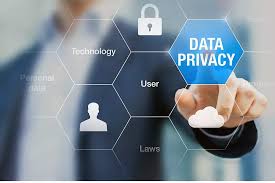Any activity on our computer, phone, or Ipad contributes to our digital footprint. Everything that someone does online can be traced back to that person. Our digital footprint poses the question, Is our personal information secure? With our online history so easily accessible, this makes us vulnerable to hackers with malicious intent who could release our personal information. For Darieth Chisolm, her ex boyfriend used her digital footprint as a way to terrorize her. He posted explicit photos of her on a website for the whole world to see. This was extremely detrimental to her image and her mental health.
Affects on Society
Our digital footprint can be used in malicious ways if our private information is fallen into the wrong hands, which can affect anyone. Our personal information such as address, phone number, credit or debit card information, emails, and personal photos could be leaked by hackers at any moment. Unfortunately, cases like Darieth Chisolm's is common among teenagers and young adults because most of their digital footprint comes from social media. Young couples might trust each other to share explicit content, however, the content shared does not disappear. An ex partner might use that content to expose you or a hacker could gain access to that content. Nobody is safe from the possibility of private information being leaked online. It is crucially important to be aware of the content we post and share online or on social media. One day that content can come back to haunt you if ever spread publicly across the internet.
Government Involvement
Four governmental Acts have been established to protect the online privacy of users. The U.S. Privacy Act of 1974 was put in place to give users access to their data and to know what companies are doing with their data. Health Insurance Portability and Accountability Act (HIPAA) ensures the protection of a patient's personal medical history and data. Gramm-Leach-Bliley Act (GLBA) protects the personal financial information of users. Children's Online Privacy Protection Act (COPPA) prevents websites or companies from collecting data of adolescents 12 years old or younger. All of these Acts aim to provide protection for online users in regards to securing personal data. Our government could improve on serving justice for those who have had their personal information leaked online by increasing fines or jail time for these crimes.
How we can protect ourselves
We can protect our personal online information by investing in VPN services for devices such as mobile phones and computers. VPN stands for Virtual Private Network and they encrypt your data, making it harder for hackers to access your personal information. VPNs also make it harder for advertisers to track your online activity. While a VPN certainly helps to provide an extra layer of protection over your online activity and personal data, it is not absolute. To further protect our online data we must be aware of the content we share and post online. It is also important to know what websites are using our data and how they are using it.
While cases like Darieth Chisolm's are heartbreaking, it is unfortunately common in our society. Be wise about who you share explicit content with because you never fully know someone's intentions with that content. It is also important to be aware of the content you share on social media or the internet. Everything can be traced back to you through your digital footprint, making you an easy target to internet hackers. With social media being a prevalent online tool in today's society, it is crucial to be cautious about your online activity.






No comments:
Post a Comment